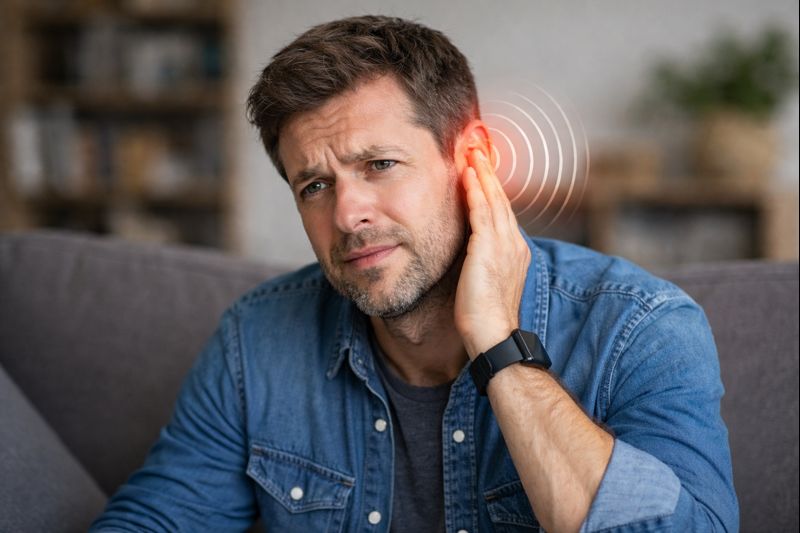
Neck pain is a widespread issue in today's world, affecting countless individuals due to various factors like poor posture, accidents, or underlying conditions. However, what many people may not realize is that their neck pain could be linked to the upper cervical spine—the area where the skull meets the top vertebrae. Upper cervical chiropractic care, a specialized field within chiropractic, focuses on realigning the uppermost part of the spine to restore health and relieve pain. This article explores how upper cervical care can alleviate neck discomfort, why it's different from general chiropractic care, and what you need to know before considering this approach.
Understanding the Upper Cervical Spine
By downloading the Digital Patient Chart mobile app you can better control your patient portal.
The upper cervical spine comprises the atlas (C1) and the axis (C2) vertebrae. These two bones support the head and allow for a wide range of movements, including rotation and flexion. Because of their pivotal role in supporting the skull, even a slight misalignment in this region can cause significant discomfort, not just in the neck, but throughout the body.
When the atlas and axis are out of alignment, they can compress or irritate surrounding nerves, leading to headaches, neck pain, and even issues like dizziness or pain radiating into the arms. Upper cervical chiropractors are specially trained to detect and correct these misalignments to help the body heal naturally.
Common Causes of Upper Cervical Misalignment
- Injury or Trauma: A blow to the head, whiplash, or other trauma can misalign the atlas and axis vertebrae, leading to a host of symptoms.
- Postural Imbalances: Chronic poor posture, such as forward head posture from extended computer or smartphone use, can gradually misalign the upper cervical spine.
- Degenerative Conditions: Wear and tear from conditions like osteoarthritis can affect the alignment and stability of the upper cervical spine.
How Upper Cervical Chiropractic Care Differs
Unlike traditional chiropractic care that often involves full spinal manipulation, upper cervical chiropractic care is highly specific. It focuses solely on the alignment of the atlas and axis bones, which are integral to overall spinal health and neurological function. Upper cervical care practitioners use precise diagnostic tools to identify the exact misalignment of these vertebrae and employ gentle techniques to realign them without forceful adjustments.
Precision in Upper Cervical Care
Upper cervical chiropractors typically rely on detailed X-rays or 3D imaging to pinpoint the misalignment. Unlike standard chiropractic adjustments that may involve quick, forceful movements, upper cervical adjustments are gentle, controlled, and highly focused. The goal is not just to treat the symptoms, but to restore the body's natural alignment so that the nervous system can function optimally.
Benefits of Upper Cervical Care
Upper cervical chiropractic care offers a range of benefits, especially for those dealing with chronic neck pain or other symptoms related to misalignment in the cervical spine.
- Non-invasive Treatment: Upper cervical adjustments are gentle, often requiring minimal pressure to restore alignment, making it suitable for individuals seeking a non-invasive approach to pain relief.
- Targeted Pain Relief: By addressing misalignments in the atlas and axis vertebrae, upper cervical care can reduce neck pain, headaches, and even dizziness by restoring proper neurological function.
- Holistic Health Benefits: Proper alignment of the upper cervical spine promotes overall well-being by improving the flow of information between the brain and the body. Many patients report improvements in energy, sleep, and overall wellness after receiving care.
What to Expect During an Upper Cervical Chiropractic Visit
Your first visit to an upper cervical chiropractor will involve a thorough consultation and examination to understand your symptoms and the potential cause of your discomfort.
Here's what you can typically expect:
- Comprehensive Assessment: The chiropractor will gather information about your health history, including any trauma, injuries, or postural issues that could be contributing to your neck pain.
- Specialized Diagnostic Imaging: The hallmark of upper cervical care is the precision in diagnosis. X-rays or 3D imaging will likely be used to visualize the exact position of your atlas and axis vertebrae.
- Gentle Adjustments: After analyzing the imaging results, the chiropractor will perform a gentle, specific adjustment to correct the misalignment. These adjustments typically involve precise movements that don’t require the forceful cracking often associated with traditional chiropractic care.
- Post-Adjustment Monitoring: Following the adjustment, your chiropractor will likely ask you to rest or take specific postures to help the body integrate the correction. In some cases, follow-up imaging may be used to confirm that the alignment has improved.
Conditions Treated by Upper Cervical Care
While upper cervical chiropractic care is most commonly associated with neck pain, it can also help alleviate a variety of other conditions due to the close relationship between the upper cervical spine and the nervous system.
Chronic Neck Pain
One of the primary conditions treated by upper cervical care is chronic neck pain. Misalignments in the upper cervical spine can irritate nerves, leading to persistent pain that radiates through the neck and shoulders. Correcting this misalignment relieves pressure on the nervous system and allows the body to heal.
Headaches and Migraines
Many individuals suffering from chronic headaches and migraines find relief through upper cervical care. When the atlas is misaligned, it can put pressure on the nerves and blood vessels that travel through the cervical spine, contributing to tension headaches or migraines. Studies suggest that realigning the upper cervical spine can significantly reduce the frequency and severity of headaches.
Vertigo and Dizziness
The upper cervical spine plays a key role in balance and equilibrium. Misalignment in this region can disrupt the flow of signals to the brain responsible for balance, resulting in dizziness or vertigo. Correcting the misalignment often alleviates these symptoms.
Is Upper Cervical Chiropractic Care Right for You?
Upper cervical chiropractic care can be highly effective for individuals experiencing neck pain, headaches, dizziness, or related symptoms. However, as with any treatment, it’s essential to consider whether it's appropriate for your specific condition. Patients with certain health conditions, such as severe osteoporosis, spinal fractures, or advanced degenerative diseases, should consult their physician before undergoing upper cervical adjustments.
For most individuals, upper cervical care offers a safe, non-invasive option to alleviate pain and improve overall health. It focuses on correcting the source of the problem—misalignment of the upper cervical spine—allowing the body to heal naturally without the need for medications or invasive procedures.
Conclusion
If you're dealing with chronic neck pain or other related symptoms, upper cervical chiropractic care might be the solution you’ve been seeking. By focusing on the precise alignment of the atlas and axis vertebrae, upper cervical care addresses the root cause of discomfort, promoting natural healing and restoring balance to the body. For those seeking a gentle, targeted approach to neck pain relief, upper cervical chiropractic care offers a promising path toward better health and well-being.









Leave a comment